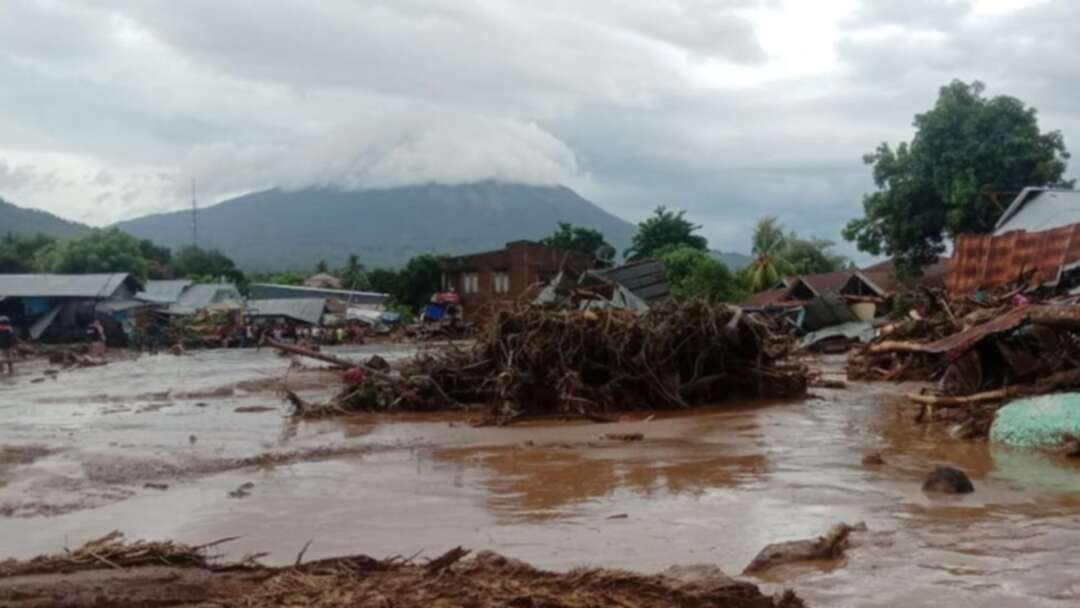-
Floods, other water-related disasters could cost global economy $5.6 trillion by 2050

According to a report released on Monday (August 29), worsening droughts, storms and torrential rain in some of the world's largest economies could cause $5.6 trillion in losses to the global economy by 2050.
This year, according to report by Reuters, heavy rains have triggered floods that inundated cities in China and South Korea and disrupted water and electricity supply in India, while drought has put farmers' harvests at risk across Europe.
Such disasters are costing economies hundreds of billions of dollars. Last year's extreme droughts, floods and storms led to global losses of more than $224 billion, according to the Emergency Events Database maintained by the Brussels-based Centre for Research on the Epidemiology of Disasters.
But as climate change fuels more intense rainfall, flooding and drought in coming decades, these costs are set to soar, warns the report by engineering and environmental consultancy firm GHD.
Water – when there's too much or too little – can "be the most destructive force that a community can experience," said Don Holland, who leads GHD's Canadian water market programme.

GHD assessed the water risks in seven countries representing varied economic and climatic conditions: the United States, China, Canada, the United Kingdom, the Philippines, the United Arab Emirates and Australia.
Using global insurance data and scientific studies on how extreme events can affect different sectors, the team estimated the amount of losses countries face in terms of immediate costs as well as to the overall economy.
Flash floods kill 550 in Pakistan in heaviest rains in decades
In the United States, the world's biggest economy, losses could total $3.7 trillion by 2050, with U.S. gross domestic product shrinking by about 0.5% each year up until then. China, the world's No. 2 economy, faces cumulative losses of around $1.1 trillion by mid-century.
Of the five business sectors most vital to the global economy, manufacturing and distribution would be hit hardest by disasters costing $4.2 trillion as water scarcity disrupts production while storms and floods destroy infrastructure and inventory.
The agricultural sector, vulnerable to both drought and extreme rainfall, could see $332 billion in losses by 2050. Other sectors facing major challenges are retail, banking and energy.
Climate change and population growth could lead to rise in floods and pollution
At this year's World Economic Forum in Davos, Switzerland, a global group of experts launched a new commission to research the economics of water that aims to advise policymakers on water management.
We must "transform how we govern water and the climate together," said commission co-chair Tharman Shanmugaratnam. "The costs of doing so are not trivial, but they are dwarfed by the costs of letting extreme weather wreak havoc."
Source: anews
You May Also Like
Popular Posts
Caricature
BENEFIT Sponsors BuildHer...
- April 23, 2025
BENEFIT, the Kingdom’s innovator and leading company in Fintech and electronic financial transactions service, has sponsored the BuildHer CityHack 2025 Hackathon, a two-day event spearheaded by the College of Engineering and Technology at the Royal University for Women (RUW).
Aimed at secondary school students, the event brought together a distinguished group of academic professionals and technology experts to mentor and inspire young participants.
More than 100 high school students from across the Kingdom of Bahrain took part in the hackathon, which featured an intensive programme of training workshops and hands-on sessions. These activities were tailored to enhance participants’ critical thinking, collaborative problem-solving, and team-building capabilities, while also encouraging the development of practical and sustainable solutions to contemporary challenges using modern technological tools.
BENEFIT’s Chief Executive Mr. Abdulwahed AlJanahi, commented: “Our support for this educational hackathon reflects our long-term strategic vision to nurture the talents of emerging national youth and empower the next generation of accomplished female leaders in technology. By fostering creativity and innovation, we aim to contribute meaningfully to Bahrain’s comprehensive development goals and align with the aspirations outlined in the Kingdom’s Vision 2030—an ambition in which BENEFIT plays a central role.”
Professor Riyadh Yousif Hamzah, President of the Royal University for Women, commented: “This initiative reflects our commitment to advancing women in STEM fields. We're cultivating a generation of creative, solution-driven female leaders who will drive national development. Our partnership with BENEFIT exemplifies the powerful synergy between academia and private sector in supporting educational innovation.”
Hanan Abdulla Hasan, Senior Manager, PR & Communication at BENEFIT, said: “We are honoured to collaborate with RUW in supporting this remarkable technology-focused event. It highlights our commitment to social responsibility, and our ongoing efforts to enhance the digital and innovation capabilities of young Bahraini women and foster their ability to harness technological tools in the service of a smarter, more sustainable future.”
For his part, Dr. Humam ElAgha, Acting Dean of the College of Engineering and Technology at the University, said: “BuildHer CityHack 2025 embodies our hands-on approach to education. By tackling real-world problems through creative thinking and sustainable solutions, we're preparing women to thrive in the knowledge economy – a cornerstone of the University's vision.”
opinion
Report
ads
Newsletter
Subscribe to our mailing list to get the new updates!






















